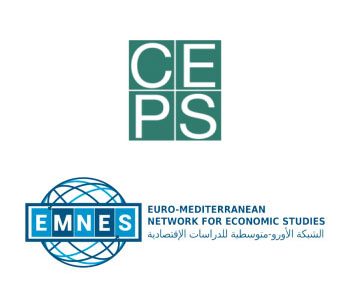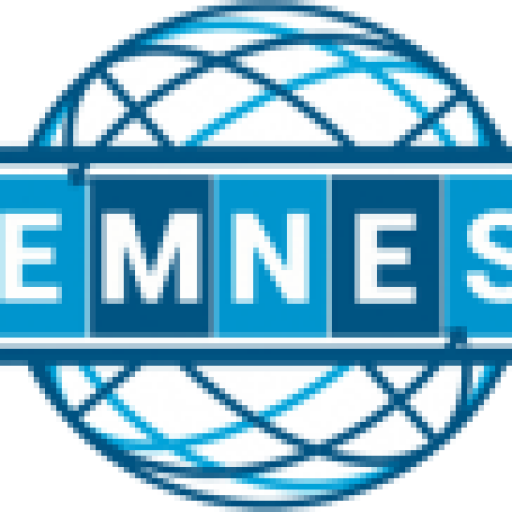The EMNES policy workshop at CEPS finished successful on 14.07.18 after 5 days of ongoing sessions focusing on the policy roadmap of the Network. Lectures by external speakers offered an overview of the EU policy priorities, vis-vis the Med region. Among the speakers were:
- Rym Ayadi, EMNES Scientific Director and EMEA Founding President
- Ingrid Schwaiger, DG NEAR, and Tom Diderich, DG GROW – European Commission
- Fathallah Sijilmassi, Former Sec Gen, Union for the Mediterranean
- Hamid El-Zoheiry, President of EMUNI University
- Roger Albinyana, IEMed
- Raja Al Marzouki, International Monetary Fund
- Hugh Barton-Smith and Jackie West, CEPS
- Cinzia Alcidi, Willem Pieter De Groen and Matthias Busse – CEPS
- Carlo Sessa, Leonidas Paroussos and George Christopoulos – Euro-Mediterranean Economists Association – EMEA
The lectures were combined with group activities that extrapolated policy insight from the research developed in EMNES. Every day EMNES researchers covered all policy areas and addressed 1 of the 4 steps of the programme:
- EMNES research inputs: Presentation of selected research contributions focusing on the policy issue
- Identification of the policy challenges and options
- Assessment of the policy options: feasibility, past experience, stakeholder, time horizon
- Policy consistency and sustainability: moving towards the (BTS) Blue Transition Scenario*
*BTS stands for Blue Transition Scenario, is the scenario EMNES is developing for 2050 horizon. The BTS is a follow up of the scenario thinking developed by Ayadi and Sessa (2013) https://www.medpro-foresight.eu/publication/scenarios-assessment-and-transitions-towards-sustainable-euro-mediterranean-2030 and analysed in https://members.emnes.org/wp-content/uploads/2017/06/emnes_wp_001-regional-integration-in-the-euro-mediterranean.pdf
“In line with this assessment of the complex dynamics of intertwined integration and disintegration characterising the region, Ayadi and Sessa (2013) devised a number of alternative scenarios that could play out in Euro-Mediterranean relations at the Horizon 2030, two of which were particularly interesting in light of the above discussion on diversity. In the pessimistic scenario, labelled “red transition”, the Mediterranean Sea becomes a dividing line between diverse but conflicting civilisations, leading to deeper political uncertainties and mounting economic and social difficulties, as tensions escalate between, but also within, the two shores, linked by the effects of contagion covering a number of issues, without being able to resort to cooperation. In the optimistic scenario, labelled “blue transition”, the Euro-Mediterranean region experiences an increasing heterogeneity where the active contribution of people, civil society and policy makers, as well as synergetic policies are built on existing areas of agreement between distinct yet related countries.”







